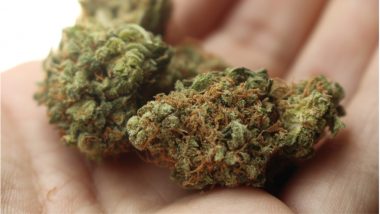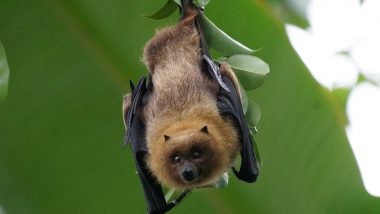Since Canada legalized marijuana, countries around the world are seeking to get a slice of what some predict will be a $32 billion global market by 2022. Lebanon is the latest country looking into legalizing cannabis cultivation.
Lebanon is preparing to legalize cannabis cultivation for medical use and to formally regulate marijuana which is cultivated openly, but illegally, in parts of Lebanon. Cultivation of marijuana has historic linkages. In Lebanon’s Bekaa Valley there is a Roman temple in the ancient city of Baalbek which bears an engraving of a cannabis leaf.
Today, Lebanon is third after only Morocco and Afghanistan as global supplier of cannabis resin, UN figures show. Lebanon is also the world's third-largest producer of illicit hashish — the psychoactive resin produced by cannabis plants — according to a 2016 study from United Nations Office on Drugs and Crime.
A new push to legalise cannabis cultivation in Lebanon came after McKinsey evaluated the economic impact of shifting Lebanon's illicit market to a regulated market for medicinal use. This move is aimed at to boost its troubled economy. This report was released in July of this year. Simultaneously another push to explore the benefits of Lebanon’s cannabis strain has been going on under Professor Mohamed Mroueh, who believes the plant's local strain might prove particularly beneficial to pharmaceutical companies.
The government has permitted Mroueh's research, but has not yet formally approved the establishment of his Medicinal Cannabis Research Centre, which opened in May and aims to join the ranks of 10 institutions worldwide studying the drug.
Mroueh is examining the medicinal properties of the local cannabis which is a hybrid between two strains: Indica and Sativa. "My impression is that it will have a different medical value because of the climatic conditions in the Bekaa Valley especially if you're talking about the amount of the rainfall, sunlight and type of soil," said Mroueh at the Byblos campus of the Lebanese American University where the centre is based.
The use of Cannbis as a recreational drug has spread across the world. At the same time, researchers are confirming the use of certain chemicals found in the cannabis plant to treat pain, bladder control problems and other symptoms of multiple sclerosis.
This has led many countries to re-evalute their stand on marijuana. Uruguay brought legislation in 2013 legalising the drug in an effort to combat drug-related organised crimes and health issues.
In Catalonia, Spain -- the regional government has launched a limited programme to allow prescriptions of Sativex to sufferers of multiple sclerosis and cancer.
Moving on to North America, the Canadian market for medical cannabis is projected to exceed a value of C$1 billion when the country formally opens stores which will legally sell marijuana.
This growing trend has prompted Lebanon to look at cannabis as a viable source of taxable income to aid its economy.
(The above story first appeared on LatestLY on Aug 28, 2018 06:39 AM IST. For more news and updates on politics, world, sports, entertainment and lifestyle, log on to our website latestly.com).













 Quickly
Quickly





















